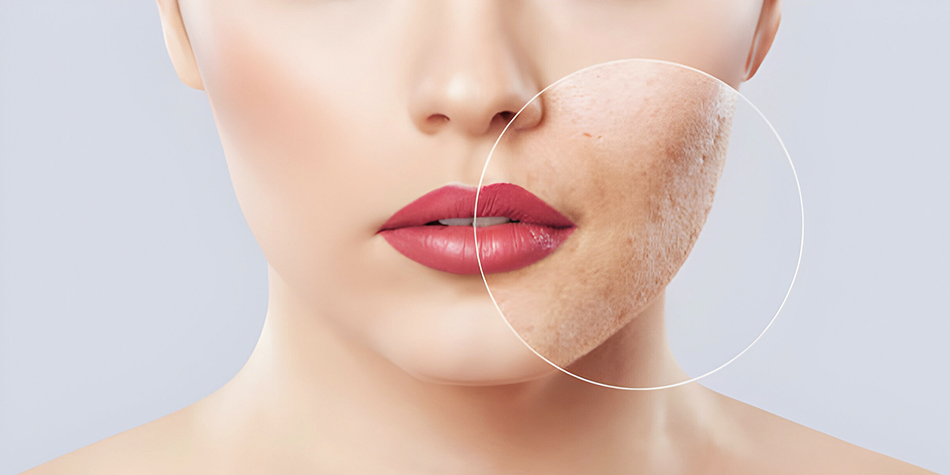Working Time
| Mon-Thu | 09:00 AM - 6:00 PM |
| Friday | 09:00 AM - 6:00 PM |
| Saturday | 09:00 AM - 2:00 PM |
| Sunday | Closed |
Request Form
Emergency Contact
Get Consultation
Acne Scares

Understanding Acne Scars
Acne scars can be a lasting reminder of past struggles with acne. These scars, though often challenging, can be managed and treated effectively with the right approach. Understanding the types, causes, and available treatments for acne scars is the first step towards achieving smoother, more even-toned skin.
Types of Acne Scars
Several factors can contribute to the development of acne, including:
Atrophic Scars:
- Ice Pick Scars: Deep, narrow scars that extend into the skin, resembling small puncture marks.
- Boxcar Scars: Broad depressions with defined edges, resembling the scars left by chickenpox.
- Rolling Scars: Wave-like indentations on the skin's surface, often caused by the tethering of underlying tissue.
Hypertrophic and Keloid Scars:
- Hypertrophic Scars: Raised, thickened scars that form due to excessive collagen production during the healing process.
- Keloid Scars: Raised, enlarged scars that extend beyond the boundaries of the original acne lesion, often itchy and painful.
Causes of Acne Scars
Acne scars develop when inflammation and tissue damage disrupt the skin's natural healing process. Factors that contribute to the formation of acne scars include:
- Severity and duration of acne lesions.
- Genetics and individual skin type.
- Picking, squeezing, or improper treatment of acne lesions.
- Delayed or inadequate treatment of active acne.
Treatments
Topical Treatments:
Certain topical treatments containing retinoids, alpha hydroxy acids (AHAs), or vitamin C can help improve the appearance of mild acne scars by promoting cell turnover and collagen production.
Minimally Invasive Procedures:
- Severity and duration of acne lesions.
- Chemical Peels: Chemical solutions applied to the skin to exfoliate the outer layers, revealing fresher, smoother skin underneath.
- Microneedling: A procedure that uses tiny needles to create controlled micro-injuries in the skin, stimulating collagen production and improving the appearance of scars.
Laser and Light Therapies:
- Fractional Laser Therapy: Laser treatment that targets specific areas of the skin, stimulating collagen production and promoting scar remodeling.
- Intense Pulsed Light (IPL) Therapy: Light-based therapy that targets pigment irregularities and stimulates collagen production, improving overall skin tone and texture.
Surgical Procedures:
- Punch Excision: Surgical removal of individual acne scars followed by closure with stitches.
- Subcision: A procedure that involves breaking up fibrous bands beneath the skin to release tethered scars and promote collagen production.
Consultation and Treatment Planning
Every individual's skin is unique, and the most effective treatment approach for acne scars may vary. It's essential to consult with a qualified dermatologist or skincare professional to assess your skin condition and develop a personalized treatment plan tailored to your specific needs and goals.
We offer comprehensive evaluations and advanced treatment options for acne scars, helping you achieve smoother, healthier-looking skin. Contact us today to schedule a consultation and take the first step towards restoring your skin's natural beauty.



